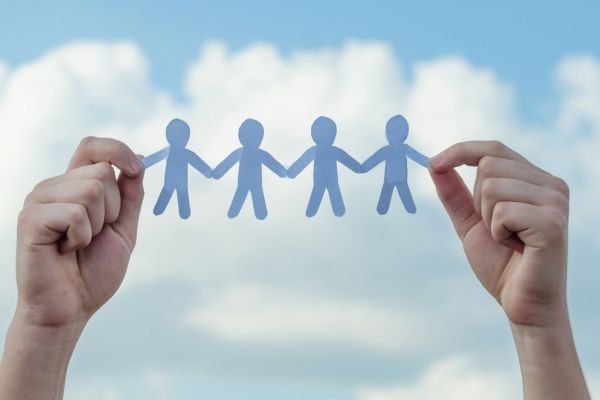
Deadline: 12-Jun-23
Are you a champion of Locally Led Adaptation? Apply now to tell your story to the world!
Through this call, the Global Centre on Adaptation (GCA) and the Climate and Development Knowledge Network (CDKN) are looking to identify and collaboratively develop a number of stories with local partners working in Africa, Asia or Latin America, which can highlight different lessons emerging from community-driven and locally-led interventions. These stories will form part of a publication that will be launched at the climate change conference of the parties (COP28) in November 2023 and will follow on from the Stories of Resilience – Lessons from Local Adaptation Practice, which was produced by the GCA in 2022.
Is this call for you?
- They are looking to identify cases from community-based, local non-governmental organisations or local governments that have recognised, prioritised and mobilised the capacity and knowledge held by local actors to design and deliver local adaptation interventions. While the work of the GCA and CDKN focuses on climate resilience and action, the stories could focus on lessons from other sectors too (for instance, related to processes that enable and empower local leadership, or focus on a climate-vulnerable development sector such as health), to highlight learning that they could apply to the climate adaptation field. The stories could highlight successful examples but could also show cases where certain strategies or approaches were tried, but they did not succeed, providing rich lessons for others.
- The lessons could revolve around and include a mix of the following elements, which are highlighted to give you an idea of the range of stories that could be included (but are by no means an exhaustive list). For example:
- How the voices and needs of marginalised actors (e.g. the elderly, people with differing abilities, young children or impoverished women) were put at the centre of a decision-making process and/or shaped the actions of a (government) plan, intervention or policy.
- The process through which financial resources from a donor or government institution reached the local level and their use was decided on by local actors (e.g. through locally-led budgeting).
- The ways in which the leadership, confidence and/or abilities of local actors (to decide, plan, implement, etc.) were increased, to result in more inclusive or effective decisions and/or actions. – How local resources (e.g. skills, knowledge, data, networks) were mobilised to support a process or intervention.
- How the success of an intervention (e.g. through improvements in local wellbeing or resilience) was defined and/or measured in a meaningful way for and by local actors, or how resilience itself was defined and measured by local actors.
- How local actors promoted processes of accountability and transparency in decision-making, investments, process or programme-design and/or implementation.
- The ways in which equitable partnerships, including with local and marginalised actors, government, civil society and/or the private sector, were established and worked to provide more socially-just outcomes.
- How power dynamics between different actors were addressed or shaped to give more voice to local and/or marginalised actors.
- How understanding of climate risks and vulnerabilities was strengthened at the local level and led to locally-led adaptation actions.
Eligible Countries
- Countries: Africa, Asia, Latin America.
How to Participate?
- They would love to hear from you if you think you have a potential story to share. They expect to include approximately ten stories 1 (of up to about 6,000 words each), which are rich in detail and depth, particularly focusing on the ways in which (i.e. through specific processes, approaches and strategies) particular outcomes were achieved. They intend following this process:
- If your story fits, they will be in touch to organise up to three online interviews in which they hope to agree on the elements of the story together. The team has the capacity to conduct interviews in English, Spanish, French or Bahasa Indonesia. The interviews are expected to take place in the months of June and July. They will be asking you for additional supplementary material to help them best understand your story context and issues (e.g. project documents, reports, articles), as well as high resolution photographs (with an indication of who to credit) to accompany the written text.
- They will write the draft story in English and share it with you for corrections and/or additions by September. You will be recognised as a co-author in the story, and they will ask you to provide them with your organisation’s logo (if relevant) to be included in the publication.
- The stories will be analysed for common themes and form part of a publication that will enhance decision-makers’ and practitioners’ practical understanding of locally-led action as an approach to achieve inclusive, sustainable and equitable climate resilience.
- The publication will be accompanied by two videos. They will reach out to you through a separate interview to contribute to the videos in the month of August. At this stage, they will also ask for high resolution photographs and video material that can be used in the publication and dissemination material.
Selection Process
- When selecting case studies, they will be looking for good practices that can inform adaptation processes in different contexts, and strength of evidence of locally-led adaptation/action, as well as the geographic spread of case studies.
- Story contributors will be compensated for their time and will be paid once they provide comments and approval on the story draft and submit required video and photo material. They also hope that this process is the beginning of a longer-term relationship with story contributors, which could include peer learning opportunities with other chapter contributors and showcasing of the different voices in various platforms.
For more information, visit Climate and Development Knowledge Network (CDKN).